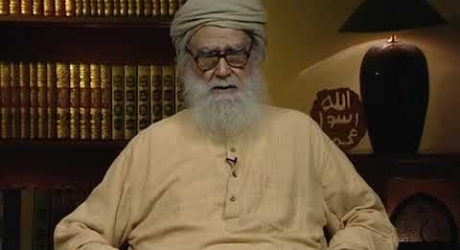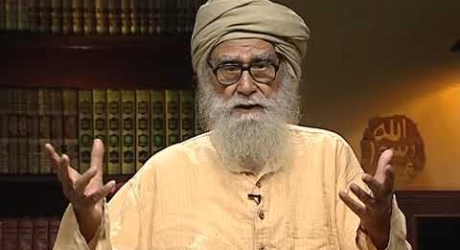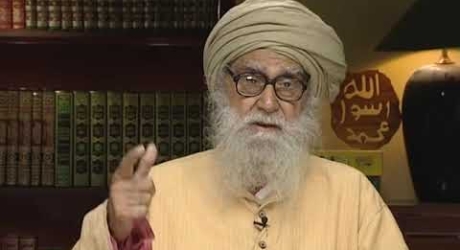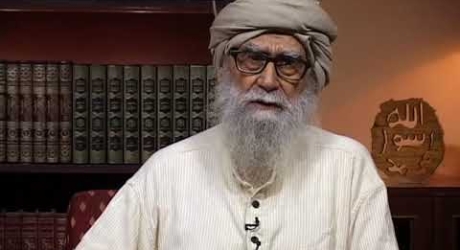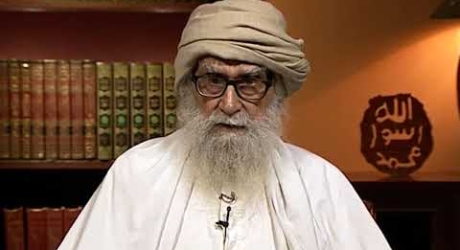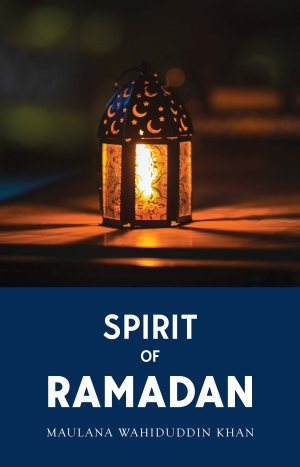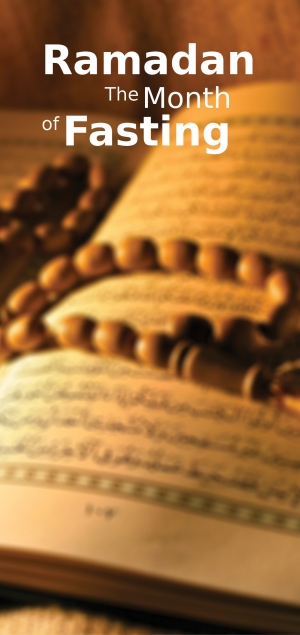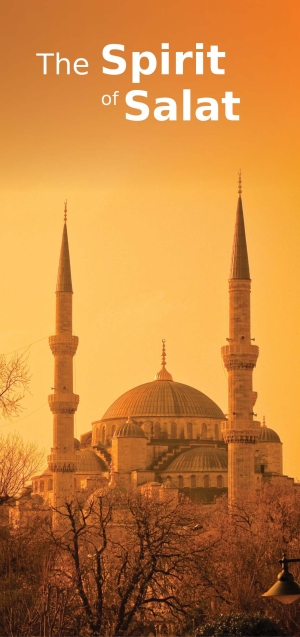The Prophet Muhammad has said, “Islam has been built on five pillars: testifying that there is no god but God and that Muhammad is the Messenger of God; saying prayers; paying the prescribed charity (zakat); making the pilgrimage to the House of God in Makkah and fasting in the month of Ramadan.”
Faith (iman) means belief in divine truths. Prayer, in essence, means bowing before the glories of God so that any sense of superiority a man may have will be dispelled. Fasting (sawm), emphasising abstinence, builds up patience and fortitude. Charity (zakat) entails the recognition of others’ needs so that what has been given to humankind by God may be equitably shared. Pilgrimage (Hajj) is a great rallying of God’s servants around Him. These are not mere empty rituals but the exercise of positive virtues, the quintessence, in fact, of those qualities which our Lord wishes to be inculcated in us. If we can cultivate them, we shall be deemed to possess the divine characteristics so cherished by Islam. Thus, it is true to say that faith, humility, fortitude, recognition of rights, and unity are the pillars on which rests the entire edifice of Islam.
Featured Articles
Featured Videos
FAQs
Abdullah Bin Umar said that the Messenger of Allah said: The foundation of Islam has been laid on five principles; to bear witness that there is no God but Allah and that Muhammad is His prophet; to offer prayer (Namaz); to give alms (Zakat); to perform Hajj and to keep fast during Ramadan.
According to this Hadith, these five principles form the pillars of Islam. Like a mansion stands on pillars so does the Islamic faith stand on these tenets. Outwardly these five principles are names given to certain practices, like, repeating the words accepting the oneness of God and the prophethood of Muhammad, going through the rituals of the prayers (Namaz), giving the prescribed amount of alms (Zakat), performing the Hajj and to observe the fast of Ramadan. But the manifestation of these rituals is not the sole aim; it is the spirit behind them, which is the real aim. Outward manifestation is just one part of the truth, the best way to observe these rituals is in which you get to the reality.
These principles are principles of Islam only as long as their manifestation and spirit are interwoven. Without the spirit, the form is as good as its not being there at all.
Source: Spirit of Islam October 2018
Acceptance of God as one’s Lord is like making a covenant to place Him at the central point in one’s life, so that He may become the pivot of one’s thoughts and emotions. It means entrusting oneself to Him entirely and focusing upon Him all one’s hopes and aspirations, fears and entreaties. Then, instead of living for worldly things, one will live for one’s Sustainer. He will thus become all in all in one’s life.
Every man, big or small, lives for something or the other which is material in this everyday world of ours. But this is to live in ignorance—trying to build one’s nest on branches that do not exist. A truly worthy life is that which is lived for one’s Lord, with no support other than Him. Man should live in remembrance of God. His name should be on his lips as he wakens and as he sleeps. As he halts or proceeds on his way, he should live in the trust of God, and when he speaks or remains silent, it should be for the pleasure of his Lord.
Faith in God is like the electric current which illuminates the whole environment and sets all machines in motion. When a man finds the link of faith to connect him to God, he experiences just such an illumination from within sudden and all-embracing. His latent spirit is then awakened and his heart is warmed by his new-found faith.
Faith in God means faith in a Being who is at once Creator, Master, and Sustainer of all creation. Everything has been made by Him and Him alone and receives eternal sustenance from Him. There is nothing that can exist without Him. Consciousness of this and faith in God go hand in hand. As a consequence, a man of faith begins to look upon himself as a servant of God. In each and every thing he witnesses the glory of God, and every blessing he receives strikes him as a gift from God.
Man’s discovery of faith instills in him the conviction that a day must come when the unseen God—the great orchestrator of all events in the Universe—will make Himself manifest, so that man will see and believe tomorrow what he fails to see and, therefore, questions, today. His belief tells him that the manifestation of the Creator and Master will be like the brightness of the sun after the darkness of the night—the manifestation, indeed, of an omniscient Judge and Arbiter.
Source: Islam Pocket Guide
Faith is the first pillar of Islam. For its manifestation one is required to utter his faith in the oneness of God and the prophethood of Muhammad. But its spirit lies in its acceptance. Through this article of faith, a man accepts God and all His attributes. He also accepts that God has sent Muhammad to this world as the eternal guide for all mankind. If this reality reaches one’s heart, it becomes a part of his being. His heart opens to the truth and reality. He is transformed into a man who will overcome any obstacle to reach the truth.
What is the spirit of Salah? Its manifestation is the daily five times prayers but the spirit is humility. A man performing the salah bows before his Creator and thereby creates a sense of humility within himself. A man who is fired by this spirit will be devoid of pride and ego. He will develop a quality of humility and will be far removed from a false sense of pride and importance.
What is the spirit of Zakat? Its manifestation is giving a fixed amount in alms annually, but the spirit behind is the service of mankind. A man who gives alms will develop a zeal in himself to do good to others. He would like to live a life that is most useful to others.
What is the spirit of Hajj? Its manifestation is the annual ritual. But its spirit is unity and solidarity. A man who performs the Hajj in its real spirit will do away with the feelings of opposition. He will live in unity and harmony even in the face of provocation.
What is the spirit of Fasting? Its manifestation is fasting in the month of Ramadan. But the spirit is to endure. A man who keeps fast will soon learn to tolerate even unpleasant situations. He will ignore what may be objectionable and concentrate on the positive aspects of the matter.
Those who adhere to these five pillars of Islam only to the extent of their manifestations will find that their lives are devoid of the spirit of these pillars.
For example, they will repeat the words accepting the oneness of God and the prophethood of Muhammad, but beyond these words when they are confronted with truth, they will not accept it, because they have not understood the spirit of what they repeat. They will go through the ritual of prayer (Namaz) but once outside the mosque, they will not be able to display humility in their interaction with others. The reason for this is that they have not imbibed the spirit of Namaz.
Likewise, those who take out a fixed amount as alms (Zakat), will not show any compassion while dealing with others. Because the spirit of Zakat is missing. They will go for Hajj, perform the rituals, and come back. But they will not be ready to ignore the complaints of others and forge a unity because the true spirit of Hajj has not touched them. During the month of Ramadan, they will keep the ritual fast. But when they are required to show patience, they will be found lacking. They will be easily provoked. The reason for this is that they have not understood the spirit behind the fasting.
Anyone who has adhered to the five pillars of Islam is a faithful Muslim. He has made himself entitled to God’s bounty, in this world as well as in the world hereafter. But the five pillars of Islam have to be accepted in their manifestations and spirits. The rewards, which have been promised, are for their complete and not partial adherence.
Source: Spirit of Islam December 2018
Fasting (sawm) is the third pillar of Islam. Right from dawn till dusk, a man who is strictly on a fast will neither eat so much as one morsel of food nor drink so much as one drop of water. By submitting to this discipline, that is, by depriving himself of the prime necessities of life, he learns the valuable lesson of fortitude. With no food and drink, he naturally feels hungry and thirsty, and his strength begins to ebb. The entire routine of his life is severely disturbed and his whole system is upset. But, out of a high sense of discipline, he braves all these difficulties and discomforts, and, remaining alert and never losing heart, he steadfastly discharges his duties. Food and drink may be temptingly placed before him, but, despite an overwhelming urge to have both, he will not even touch them. In this way, he prepares himself for a well-regulated and responsible life, doing only what is his duty and refraining from pernicious acts and habits. He is thus strengthened to continue with his mission in life, no matter how he may be beset by adversity.
God has endowed man with innumerable gifts, but all too often, he takes them for granted without any feelings of gratitude. Countless benefits like the air, the sun, and the water, have been showered upon man, the absence of any one of which would cast his delicately balanced system into a living hell. But because he has received these things without any effort on his part, he sets no great value upon them and hardly ever stops to ponder upon how they came to be his.
It is only when fasting temporarily curbs the satisfaction of his desires that his consciousness of the value of these divine gifts is awakened. When, at sunset, after a whole day’s hunger, thirst, and the accompanying discomfort and fatigue, a man begins to eat and drink, he becomes fully aware of his utter dependence on God’s bounty. He is then filled with gratitude towards God and the realization comes to him that, even were he to lay down his life for this Bountiful Creator, the price he should have to pay would not be too high.
Source: Islam Pocket Guide


